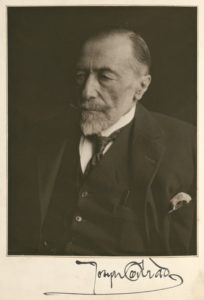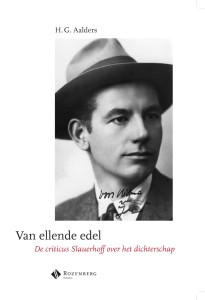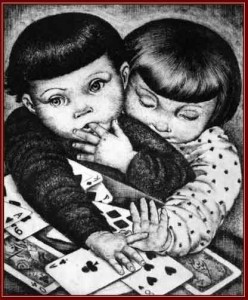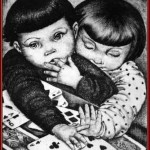From the Web – The World Atlas of Language Structures
The World Atlas of Language Structures (WALS) is a large database of structural (phonological, grammatical, lexical) properties of languages gathered from descriptive materials (such as reference grammars) by a team of 55 authors (many of them the leading authorities on the subject).
The first version of WALS was published as a book with CD-ROM in 2005 by Oxford University Press. The first online version was published in April 2008. Both are superseeded by the current online version, published in April 2011.
WALS Online is a joint effort of the Max Planck Institute for Evolutionary Anthropology and the Max Planck Digital Library.
It is a separate publication, edited by Dryer, Matthew S. & Haspelmath, Martin (Munich: Max Planck Digital Library, 2011)
ISBN: 978-3-9813099-1-1. The main programmer is Robert Forkel.
Read more: http://wals.info
Joseph Conrad Collection
 Joseph Conrad was born to Polish parents in 1857 in Berdychiv, which is part of modern Ukraine. As a young man he spent 19 years as a merchant marine sailing on French and British ships. His years at sea and the various persons he encountered served as inspiration for events and characters in his subsequent literary career. English was his third language (after Polish and French), which imbues his writing with a distinct style.
Joseph Conrad was born to Polish parents in 1857 in Berdychiv, which is part of modern Ukraine. As a young man he spent 19 years as a merchant marine sailing on French and British ships. His years at sea and the various persons he encountered served as inspiration for events and characters in his subsequent literary career. English was his third language (after Polish and French), which imbues his writing with a distinct style.
The Joseph Conrad collection contains manuscripts, letters, documents, and photographs. Of particular significance are manuscripts for several of his novels, including Almayer’s Folly (1895), Chance (1913), and Victory (1915). His outgoing correspondence includes letters to Henry D. Davray, Norman Douglas, Henry James, Alfred A. Knopf, and others.
Incoming correspondence has been excluded from this online collection due to copyright concerns.
This collection was digitized as part of Project REVEAL (Read and View English & American Literature).
Go to: http://hrc.contentdm.oclc.org/
Joseph Conrad ~ Nostromo
Author’s Note
“Nostromo” is the most anxiously meditated of the longer novels which belong to the period following upon the publication of the “Typhoon” volume of short stories.
I don’t mean to say that I became then conscious of any impending change in my mentality and in my attitude towards the tasks of my writing life. And perhaps there was never any change, except in that mysterious, extraneous thing which has nothing to do with the theories of art; a subtle change in the nature of the inspiration; a phenomenon for which I can not in any way be held responsible. What, however, did cause me some concern was that after finishing the last story of the “Typhoon” volume it seemed somehow that there was nothing more in the world to write about. Read more
Van ellende edel. De criticus Slauerhoff over het dichterschap ~ Inhoudsopgave & Woord vooraf
1. Inleiding
2. Demonen en dode zielen: Ruslands letterkunde
3. Stéphane Mallarmé: mysterieuze hersenspinsels en het vrije vers
4. ‘In den beginne was het Woord’: een beginselverklaring
5. Jules Laforgue: ‘stoutmoedige acrobaat in tijd, ruimte en gebied van het ik’
6. Arthur Rimbaud: ‘Mijn doode kameraad, ontembre zwerver, burgerterger’
7. Tristan Corbière: ‘Mijn broederziel, wiens incarnatie ik misschien ben’
8. ‘Het geval Lautréamont’: de logica van een abnormaal individu
9. Rainer Maria Rilke: ‘het móeten zwerven’
10. ‘Gorters werk bezitten is al een groot geluk’. Slauerhoff en het vrije vers
11. Slauerhoff polemist
12. Recapitulatie
13. De identiteit van de dichter. Slauerhoffs vers-praktijk
14. ‘Van ellende edel’. Besluit
Bijlage I. Slauerhoffs publicaties beschouwend proza
Bijlage II. Een selectie uit Slauerhoffs poëticale gedichten
Bijlage III. Corbières besproken gedichten
Bijlage IV. Slauerhoffs stuk over Lautréamont
Bijlage V. Slauerhoffs besproken gedichten
Bibliografie
Extra: VARA ~ De wereld draait door: Van Dis en Meinderts over de nalatenschap van Slauerhoff
Rozenberg Publishers 2005 – ISBN 90 5170 516 6
Woord vooraf
Dit proefschrift was een project dat voor het grootste deel tot stand kwam in stilte en in de eenzame teruggetrokkenheid van studeerkamer, bibliotheek en archief. Toch had deze arbeid niet zonder anderen gerealiseerd kunnen worden. Een aantal mensen wil ik daarom op deze plaats bedanken voor hun bijdrage aan de totstandkoming van dit boek. Read more
Van ellende edel ~ Inleiding ~ Want wie vond ooit door te zoeken?
 1.1 Probleem- en doelstelling
1.1 Probleem- en doelstelling
‘Vanouds bracht reeds het dichter-zijn met zich mee, het móeten zwerven’, schrijft Slauerhoff in 1925 in een bespreking over Rilke.[i] Behalve het beroep dat hij op de Oudheid doet, valt het op dat Slauerhoff hier twee kenmerken van het dichterschap geeft: de aanwezigheid van een dwingende macht die de dichter in zijn ban houdt, en de geneigdheid van de dichter tot zwerven, tot een reizend leven dat een sedentair bestaan uitsluit.
Beide opvattingen heeft Slauerhoff in vers-theorie en vers-praktijk beleden. Zowel de door een demonische macht beheerste dichter, die hem tot scheppen dwingt, ook al wil hij het niet, als de onrustig dolende dichter (‘De dichter gaat de wereld rond’), vindt in het werk van Slauerhoff zijn duidelijkste verschijning in de figuur van de poète maudit.
Anders dan dat van tijdgenoten en collega-dichters als Marsman, Nijhoff, Bloem en Vestdijk is het kritisch werk van Slauerhoff altijd op de achtergrond gebleven. Het is het minst bekende deel van zijn oeuvre. Zijn brieven genieten zelfs meer bekendheid. De grote belangstelling voor de persoonlijkheid van de dichter Slauerhoff zal hier wel de reden voor zijn. Maar door een biografische bril bezien is het kritisch werk uiterst verhelderend. Het vormt dan ook een onlosmakelijk onderdeel van zijn levensbeschrijving. Opvallend is bijvoorbeeld Slauerhoffs vroege belangstelling voor Franse auteurs, in het bijzonder enkele dichters uit het Franse symbolisme[ii] en poètes maudits van het fin de siècle, aan wie hij tussen 1919 en 1925 een zestal stukken wijdde. Behalve een persoonlijke typering en interpretatie van deze auteurs en hun werk laten deze artikelen ook zien hoe Slauerhoff dacht over zaken die zijn eigen poëzie betroffen. Read more
Belinda Jack ~ What Is Reading
Neuroscience is beginning to explore what happens when we read by monitoring the areas of the brain that are stimulated while we read. Do these findings matter to the Humanities? Is there neurological evidence that the brain responds differently to ‘good’ and ‘bad’ writing? How we read clichés will be examined, as well as what the experience of re-reading tells us about reading first time round?
The transcript and downloadable versions of the lecture are available from the Gresham College website:
http://www.gresham.ac.uk/lectures
Gresham College has been giving free public lectures since 1597. This tradition continues today with all of our five or so public lectures a week being made available for free download from our website. There are currently over 1,500 lectures free to access or download from the website.
Website: http://www.gresham.ac.uk
Twitter: http://twitter.com/GreshamCollege
Facebook: https://www.facebook.com/greshamcollege
Gabriel Garcia Marquez 1927 – 2014
Terug naar Macondo – Het spook van Honderd jaar eenzaamheid en het inheemse innerlijk van de Mesties ~ Inhoudsopgave
 Bij dit boek
Bij dit boek
Kennersblik; Stem; Boek.
Achter de coulissen van Macondo
Over de oorsprong
Cuernavaca; Herinnering; Guajiros; Ten slotte
Over de roman
Begin; Revolte; Segundo; Storm; Ten slotte
Over de nesteling
Lenzen; Decodering; Voelen; Geheugen; Ten slotte
Over het theater
Wilsbeschikking; Soorten; Herinneringsruimten; Bewust; Schijnwerpers; Bundeling; Politiek; Ten slotte
Op de podia van Macondo
Melquíades en de geschiedenis
Tijdsgevoel; Dictaturen; Blikveld; Cambridge; Bevolkingsdruk; Ten slotte
José Arcadio Buendía en de schepping
Schepper; Wortels; Slang; Viering; Lichaam; Instellingen;Scheppingsverhalen; Ten slotte
Úrsula en de omwenteling
Opnieuw; Marianismo; Antecedenten; Breekijzerin; Guadalupe; Ten slotte
Bij twee hoofdrolspelers uit Macondo
Het aureool van de Kolonel
Ingewijd; Normatief; Thompson; Opstanden; Oorlogen; Gemeenten; Glimlach; Ten slotte
De arcadische strijd van Segundo
Arcadisch; Monroe; Salvador; Trauma; Mannelijkheid; Ten slotte
De slotscène van Macondo
De gemoedstoestand
Utopie; Identiteit; Liefde; Ten slotte.


